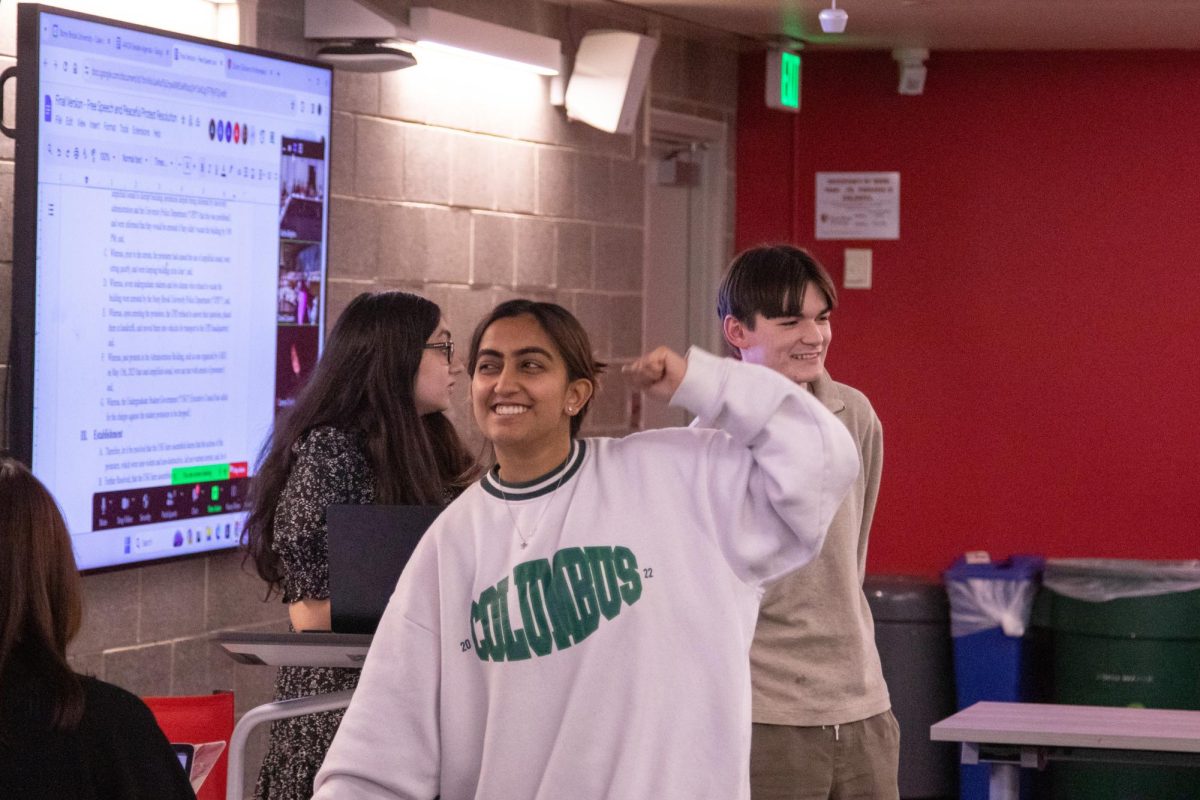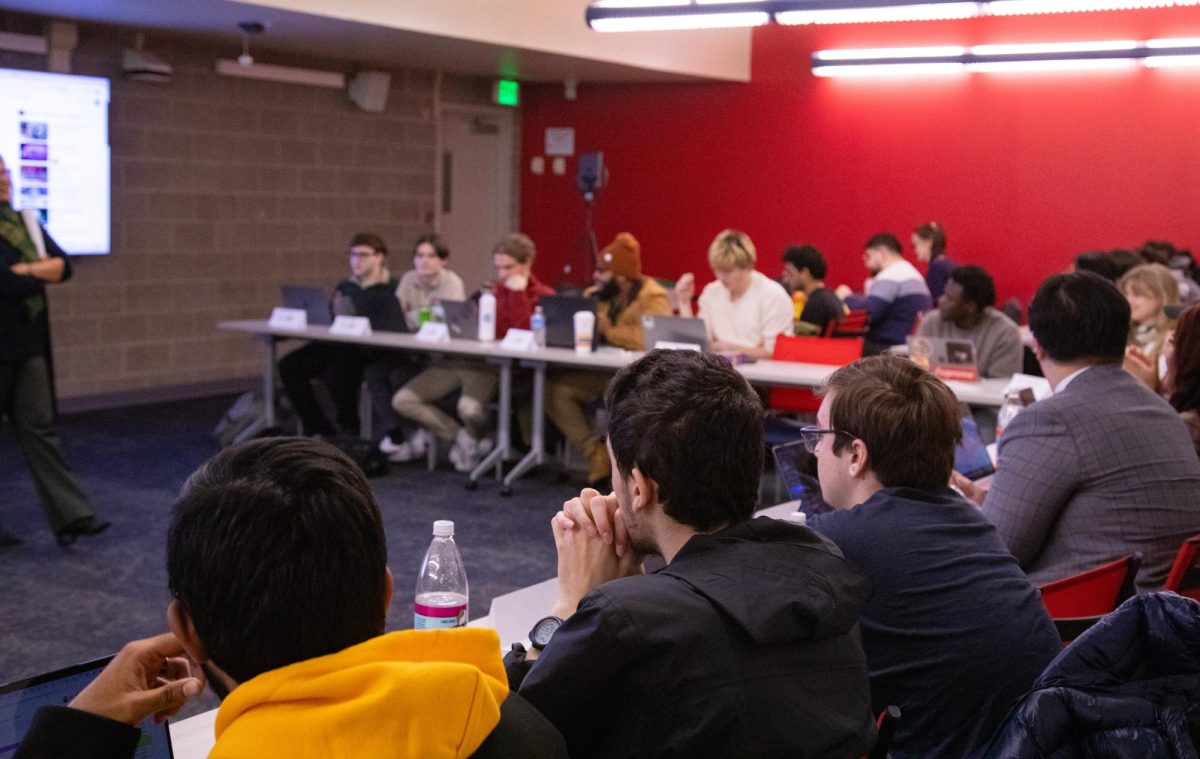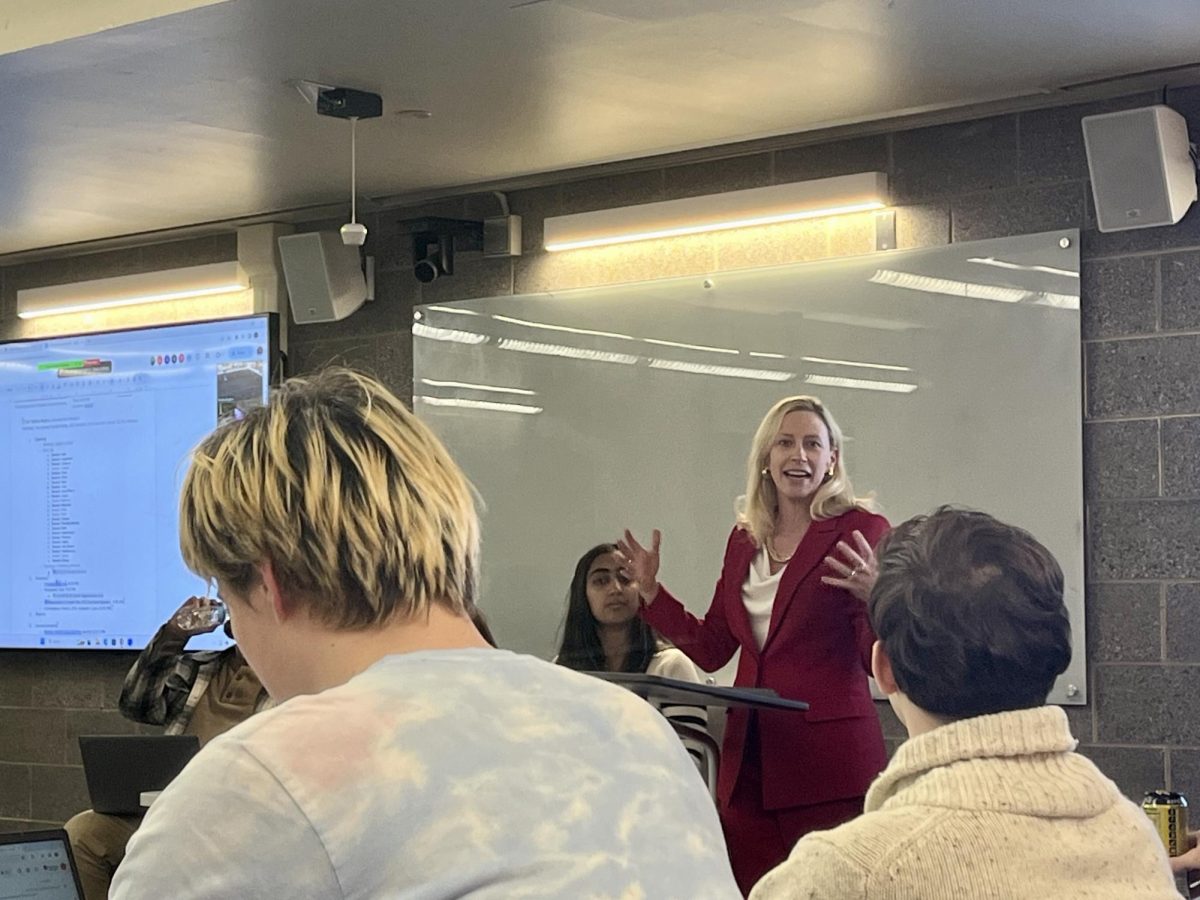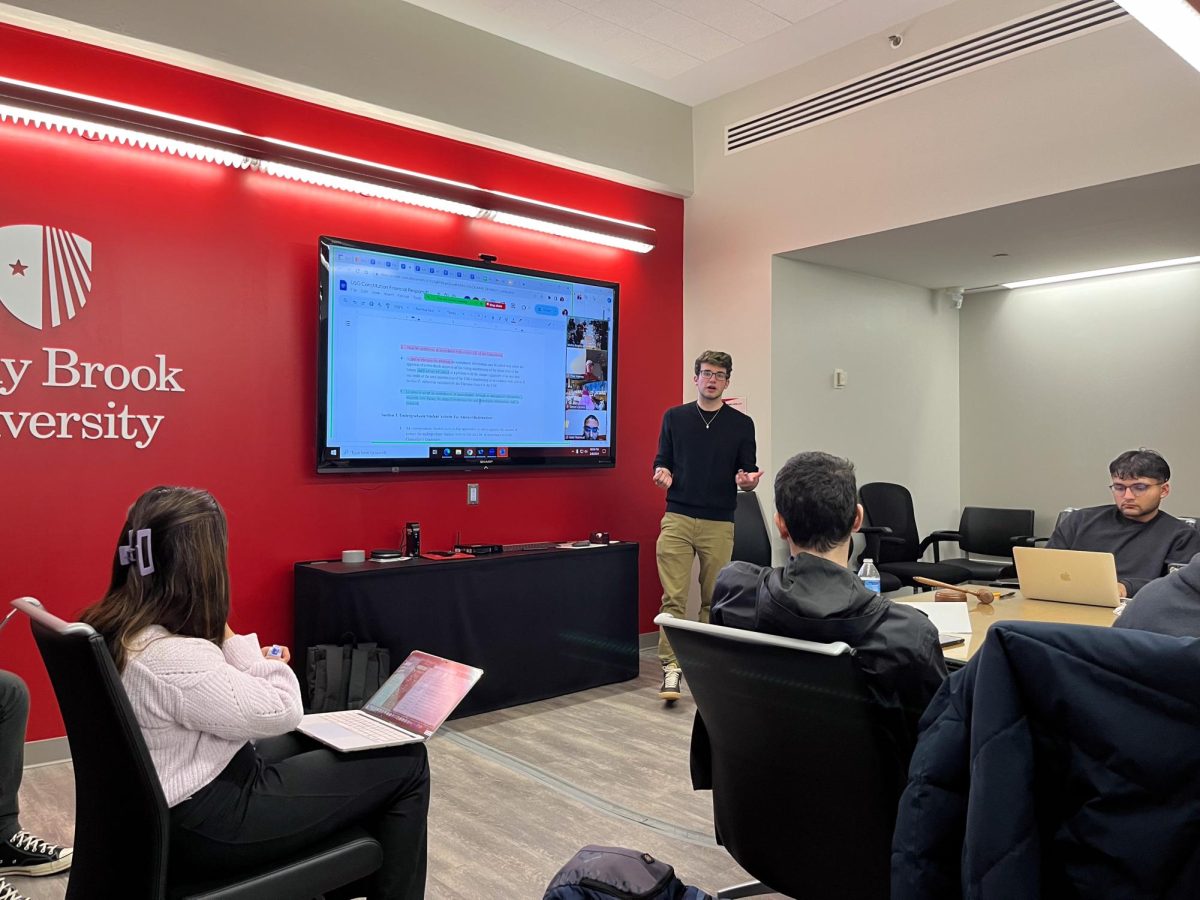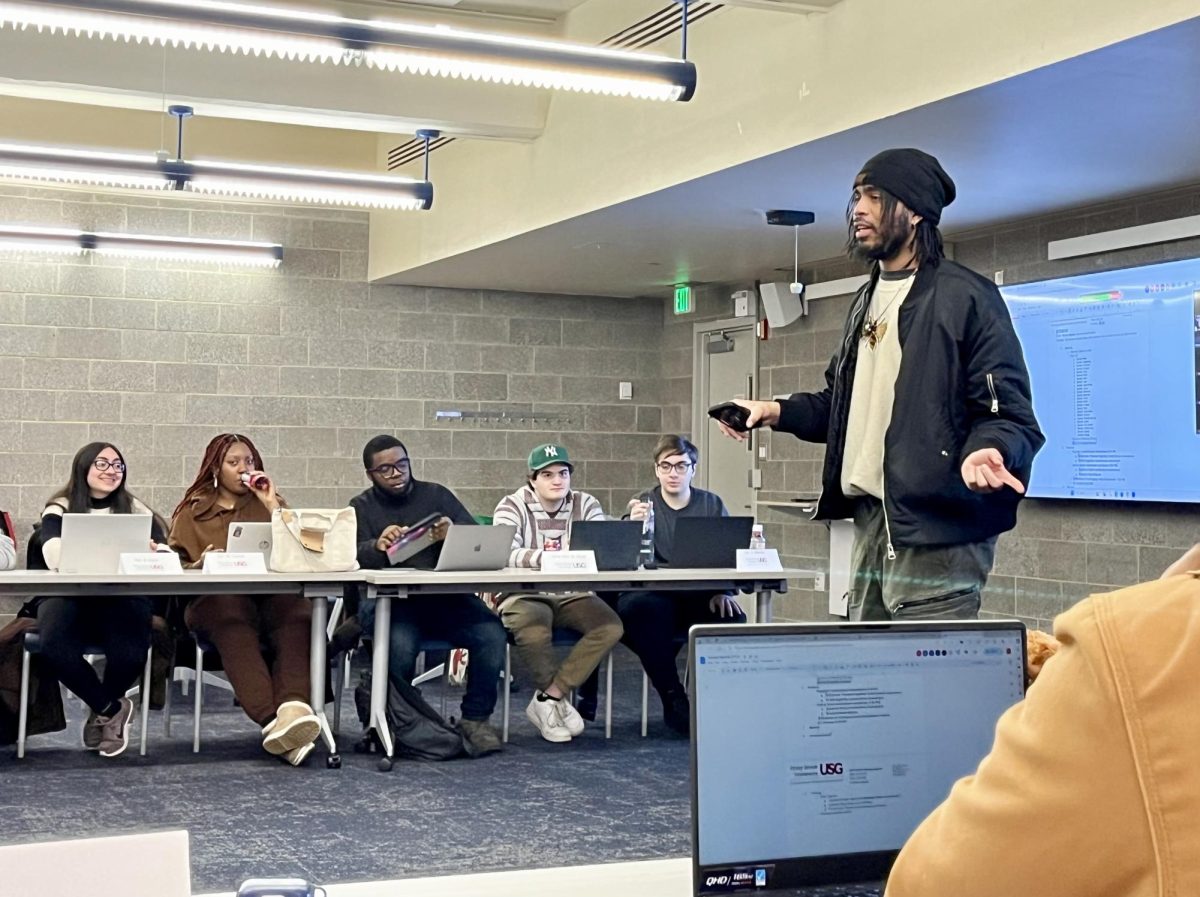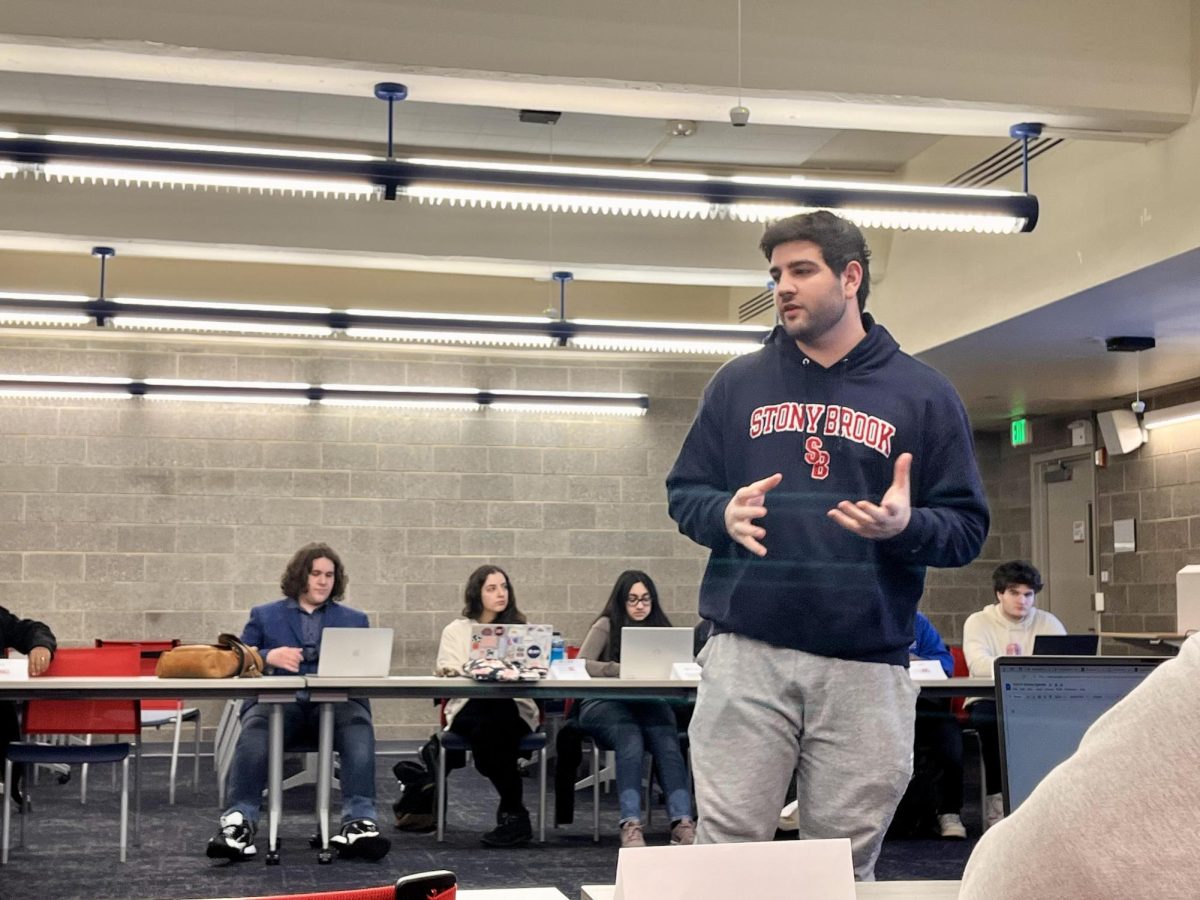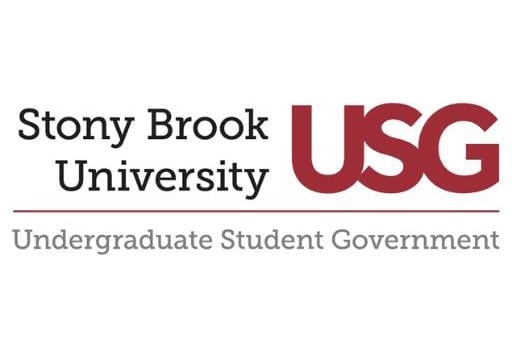
Amidst an Undergraduate Student Government’s (USG) election that is majorly uncontested for Executive Council (EC) candidates, Presidential Candidate, junior Bryan Villatoro dropped out mid-race on April 5.
With now only eight students running for the EC, six of the seven positions are uncontested: President, Executive VP, VP of Communications, VP of Student Life, Treasurer, and VP of Clubs and Organizations. This leaves the position of VP of Academic Affairs as the only position to watch for as elections rage on. Read more about each of the candidates and their initiatives here.
Election season began for the EC and the Senate of the USG on Monday, April 4 until April 8 at noon — for positions that will start in the Fall 2022 semester and last over the course of the school year.
There are 31 candidates running for the Senate, with only 23 positions opened.
In an unprecedented situation, former candidate Villatoro dropped out of the presidential election because of the campaign leaving him “negatively impacted,” specifically with his “health and wellbeing,” as he said in an email to The Statesman. Current USG VP of Communications, Sowad Ocean Karim, is the only USG President candidate to remain.
Prior to his withdrawal, Villatoro said in an interview on April 3 that being a student, his mental health and his family were his top priorities.
“I have two jobs and I’ve been doing this [campaigning], I haven’t been sleeping, I’ve been anxious. I’ve been worried. I’ve been stressed. And I’ve been neglecting my mental health,” said Villatoro.
On account of his sister and mother encouraging him to continue the race, since he “worked so hard just to get his nomination,” Villatoro said he would not drop out. Yet, he explained that he would have never run if he understood how difficult being elected USG President would have been prior.
In an emergency, USG Senate Meeting on April 5 — which occurred at 11 p.m. and went past midnight — the Senate, the legislative body of USG, had to vote on how the USG election board would proceed with Villatoro’s decision.
The key options voted on by the Senate were to either contact those who have already cast their ballots and ask them to vote in a special ballot, only this time between Karim vs No Confidence, as well as to change the presidential ballot to Karim vs No Confidence or leave the ballots as they are and add “withdrew” next to Villatoro’s name. A “no confidence” selection would not be available for this option.
Voting “no confidence” means that the voter does not think the candidate is qualified for their position and would rather not see them in office. This gives voters the opportunity to put their vote into another option, without having to vote for someone they don’t support solely because that candidate does not have an opponent.
In the case where a majority vote goes to the No Confidence selection in a Candidate vs No Options race, a special election process will have to begin. This gives way to the election process starting all over again for that specific position, and the opportunity for another candidate, if there is one, to step up to the plate.
In a majority vote, option one triumphed with 10 senators voting for it, seven voting for option two and six abstaining. Under the requirements of option one, previous votes that were between Karim vs. Villatoro will be nullified and only Karim vs. No Confidence will count as a vote going ahead. The chance to vote for Karim vs. No Confidence will also be extended to April 10 at noon. The voting deadline for the unchanged incumbent races and actions already on the ballot will remain the same — April 8 at noon.
Both EC and Senate candidates can choose to run through a party or independently. Currently, there is only one party that is taking part in elections: the Diversity, Revitalization, Efficiency, Accessibility, and Mindfulness (DREAM) Party. Generally, USG parties last for one semester. Their sole purpose is to form a coalition for that semester’s elections; parties rarely come back the following year with the same name and candidates.
The DREAM Party’s initiatives include increasing the transparency of the USG, campus building renovations, empowerment of clubs, and inclusivity and diversity on campus Karim, is running for USG President under the DREAM Party and says that being part of a party can create more unity between the wants of candidates.
“The Dream party’s initiatives and itself, these are everyone’s initiatives combined all together to see which one’s the most common,” Karim said “We all have the same initiatives, we have different solutions to it, but it all works together. There’s nothing exclusive with that and everyone’s running towards the same goals.”
Karim also acknowledges that people who run independently want to run a campaign with their own vision shed light on their individual skills and reflect their values without having to conform to a party’s views. The current USG President, Manjot Singh, believes the same. Singh imagines independent candidates will be more open to ideas if they step into the office.
“When you’re running with a party, you’re already in a narrow scope of vision and mind, but when you run independently, you’re running on your own merit,” Singh said. “When it comes to the electorate out there that are going to vote for you, the constituents, they’ll be more looking at your initiatives. They don’t see that you’re running alongside X person Y person, whoever it is. So it’s less of a popularity contest and more about your own initiative, your portfolio essentially and your views.”
With party systems at college campuses, Singh doesn’t believe they are necessary. However, he understands why students would want to join a party when running for elections at such a big university as Stony Brook.
“Since we’re in such a diverse and large university, parties are incentives for others to get outreach out there. It also builds a bond. So when people come into the office, and they’re in a party together, they already know each other, they have that form of chemistry,” Singh said.
If he were elected USG President, Karim’s goals align with the goals of the DREAM Party, specifically in his aim to restructure USG to be more open and expand the diversity of opinions, thoughts, perspectives, and backgrounds of students.
“We (Stony Brook University) don’t work in a way where cultures are blended together into one identity because that’s not who we are. Instead, we treat diversity and culture and identities like a mosaic,” Karim said. “Each person, each culture is an individual piece of shiny, beautiful colored glass, and they all come together to form the greater picture, the greater mosaic that is Stony Brook identity… that’s the beauty that I see and I want to continue to highlight as USG president,” Karim said.
If elected, Karim plans on achieving this goal by increasing diversity within CAPS, so that students from minority backgrounds can talk to mental health counselors who understand talking about their cultures. Additionally, he hopes to escalate accessible infrastructure on campus by advocating for more ramps and elevators within buildings.
Villatoro, who was running independently, also wanted to push diversity initiatives. As a student in the Education Opportunity Program, Villatoro believed he was the best candidate to address “the lack of diversity” within the USG.
However, his key ambition was to increase the involvement of undergraduate students with USG.
“We have very low participation in the USG and I think the reason for it is because we don’t make it attractive. It doesn’t pay well,” Villatoro said. “You’re not going to have people apply and try to run for an elected position if you’re not giving them decent compensation for their time.”
USG student staff, such as those on the EC and Senators, are paid a stipend. For EC, they are on a stipend of 20 hours each week, during the Fall and Spring semesters, paid $14.75 per hour, excluding the President and Treasurer who are paid $15.25 per hour. Likewise, Senators are also paid $14.75 per hour, but are on a stipend of 6 hours. This money comes from the Student Activity Fee (SAF), a semesterly payment of $99.50 which every full-time student has to pay, included in their tuition.
Singh says that currently “five to seven percent” of USG’s budget goes towards student staff, which isn’t just limited to elected officials, but also assistants that work under the EC as well.
Villatoro wanted to advocate for raised salaries for those students who are elected officials. In order to allocate more funds to student staff wages, Villatoro would’ve planned to use leftover money from previous years’ budgets that went unused.
“We just need to budget it correctly. I think that’s the problem that some of the money is not budgeted correctly,” Villatoro said.
Corresponding with the views of the DREAM Party, the independent candidate matches the party’s initiatives to revamp the campus’s aesthetic.
“There is money that we can use to improve the academic Hall, to get more chairs, get nicer furniture for the people to socialize better to create a more socially engaging place,” Villatoro said.
In a debate held on March 31 amongst the 2022-2023 EC candidates, Villatoro acknowledged he had no prior experience in USG. Despite that, he said that he was “willing to learn” and “is very serious” about the position.
Singh holds that the most important aspect for EC candidates to be best qualified is that they understand the campus community and what’s needed for all students to succeed.
“So whether that’s understanding the resources students need to succeed, works of advocacy that’s necessary…A lot of folks come to college and have never been to a concert before, they’ve never gone to a school carnival…When you know about that and you want to give your heart and attention to them and your time for that, I think that’s one of the most important qualities and everything else follows that first,” Singh says.
Singh thinks that a strong candidate is formed by a willingness to learn during engagement hours with students, senate and committee meetings, and a desire to be involved within the campus community. He hopes that the new USG governing body can bring student life back to the way it was before the COVID-19 pandemic caused the world to shut down.
USG positions aren’t the only decisions students can vote for on the ballot because this year falls on a Student Activity Fee Referendum (SAF) vote. Every two years, the Student Body has to vote on whether the SAF should remain mandatory or become voluntary to pay for.
Through the SAF, USG can fund various activities and entities. Distribution of the SAF, which totals $3.4 million per year, is allocated largely to fund clubs and organizations on campus, followed by administrative and overhead fees, USG agencies and services, contracted services, Faculty Student Association management costs, special projects and commuter/resident groups.
This vote is under SUNY Chancellor Guidelines, which mandate that all SUNY campuses are required to conduct the referendum vote during the same time as student officer elections. Since USG was founded, Stony Brook University has never gone through a referendum where the SAF was voted on to be optional.
However, in a USG Town Hall on March 31, on the SAF referendum, Director of Student Engagement and Activities, Christine Marullo stated that the fee came very close to being voted optional during the previous referendum, which was done in the peak times of the pandemic in Spring 2020.
Singh does not want to see another year where voter turnout is low, as it has historically been in previous years. Singh says USG’s goal is to get 20% of the student body to come out and vote on the referendum and elections.
To increase transparency about the referendum, USG held a Town Hall for the SAF referendum and is planning to hold tablings every day during Election Week in the Student Activities Center (SAC) Plaza, and a block party on April 6 from 12 to 4 pm also in the SAC plaza.
USG has funded over 150 SBU clubs this academic year. Through the SAF annual budget, well-known SBU events such as Brookfest, Wolfieland, Light the Brook and various comedy shows. Singh made it known during the SAF Referendum Town Hall that if the fee gets the majority vote to be optional, many of these experiences will cease to exist.
“An implication would be that it would drastically decrease USG’s operating budget, and would cause USG to either downsize a number of clubs and organizations that we fund or give them much less funding than they received before, depending on how many students opt in,” Singh said. “In the long term, if USG is not able to secure enough of a budget to operate day to day, USG would have to be resolved.”
Students can vote for their preferred candidate through a ballot on SB Engaged.
As an SBU organization, The Statesman is partially funded through the USG.










